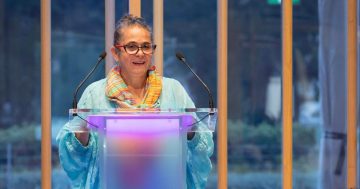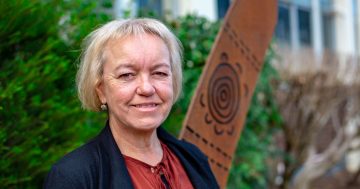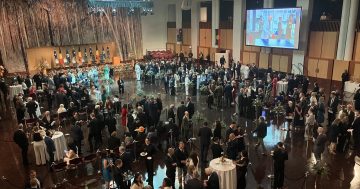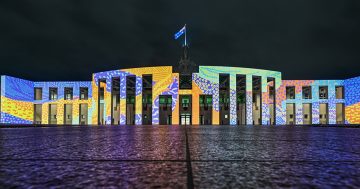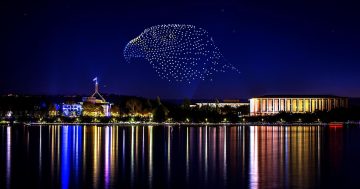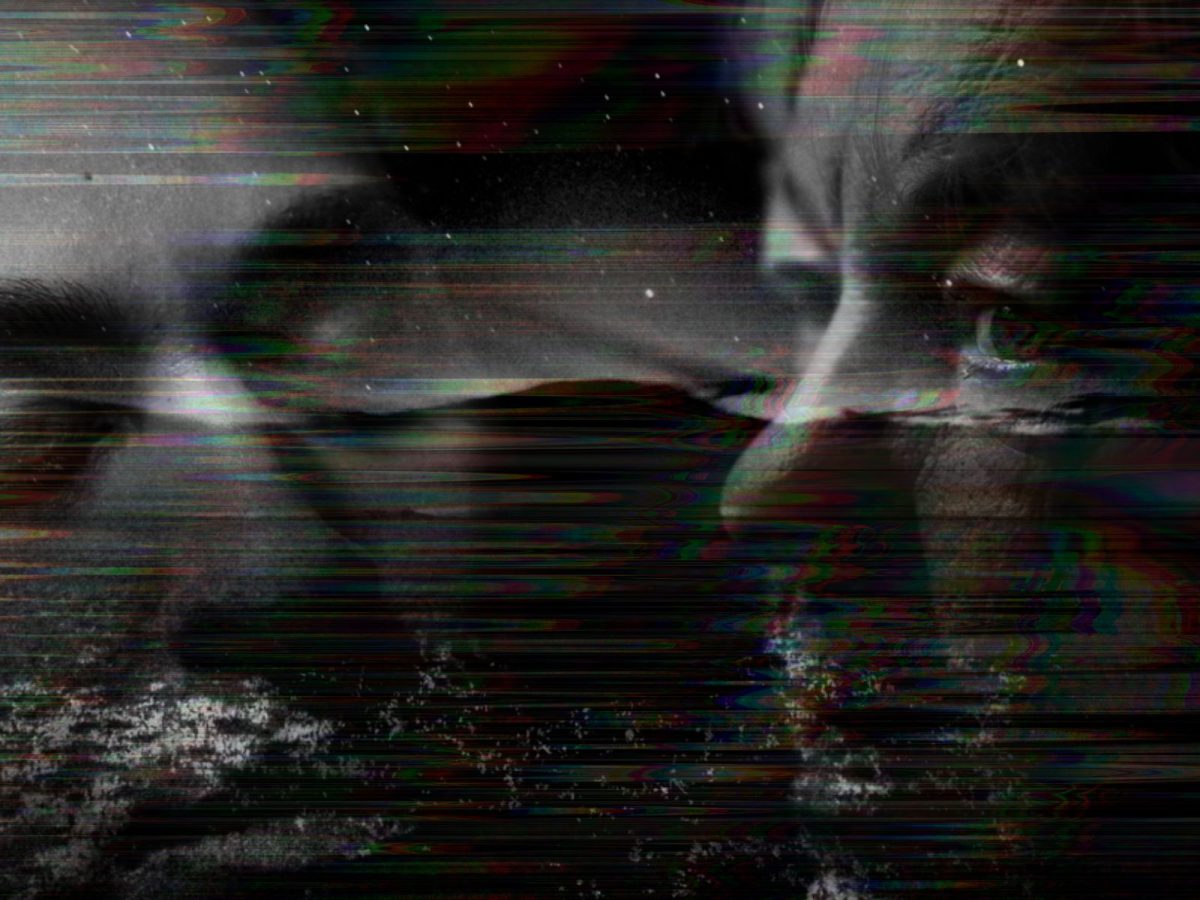
This Ngadjung promotional image features Aunty Caroline Hughes, Yolanda Lowatta and Weereewa (Lake George) on Ngunnawal Country. Image: Martin Ollman.
The sun is hot. It burns quickly through skin. The Earth is scorched and barren. The sky is fixed in unnatural hues. That life-giving resource, water, now comes only in bottles.
To some a grim, post-apocalyptic fiction, this scene depicts a scarily imaginable future to Palawa man Dylan Van Den Berg.
He is the playwright and director of upcoming Belco Arts production Ngadjung.
An environmental drama set right here on Ngunnawal Country, Ngadjung means water or waterhole in Ngunnawal.
“The title was gifted to us,” Dylan explains. “We have permission from (Aboriginal Elder) Aunty Caroline to use it. The play actually began with the title itself. It might sound like a strange process, to start a play with a title – but in this case it really informed the work.”
Those who have survived in Dylan’s stark reality quench their thirst with a synthetic liquid sold by a faceless conglomerate. Natural water reserves have all but dried up.
The audience will watch a cast of two – an unlikely pairing – unpack the past and spar over the future.
Young, smart city-slicker Cass thinks she has all the answers. She’s on the run from a multinational corporation when she encounters Flick, a fierce Elder with history running through her veins, who comes from a river that no longer exists.
The play ultimately begs the question – without water, how can we live and, more importantly, how will we remember?

Palawa playwright Dylan Van Den Berg debuts in directing Belco Arts production Ngadjung – and confronts audiences with a scarily imaginable future. Photo: Belco Arts.
Dylan began his arts career as a professional actor. “I found most available roles didn’t reflect my own experiences as a light-skinned Aboriginal person,” he said.
He stumbled into writing and his first play, Milk, won the NSW Premier’s Literary Award and the Victorian Premier’s Prize for Drama.
It was off the back of that success that Belco Arts approached him with a commission for a play.
“They invited me to explore the Aboriginal and human connection to water,” he said.
“I had to ruminate on it for a while to figure out what it was I wanted to say about water. For me it’s inextricably linked to the climate crisis and how we seem to be hurtling towards devastation. I started imaging Canberra in 70 years – what would the world look like without water?
“For Aboriginal people, our stories and history are deeply connected to our waterways. I wondered, without it, could we remember certain things?
“Cass as the younger of the two characters has never seen water, and for Flick it’s a distant memory she remembers from childhood. So the play asks in this reality, what do we stand to lose? And what do we stand to gain from listening to Aboriginal people?”
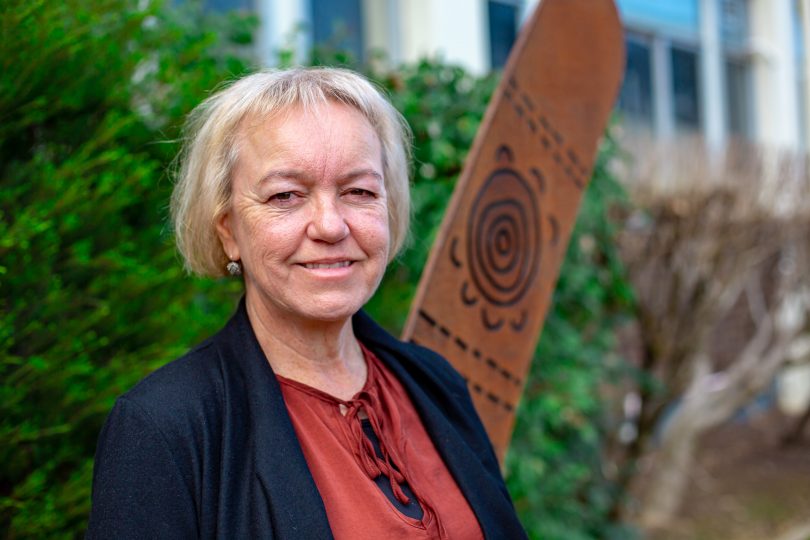
Ngunnawal elder Aunty Caroline Hughes was a pivotal consult for Ngadjung. Photo: File.
The latter in particular became abundantly clear to Dylan as he consulted with Ngunnawal elder Aunty Caroline Hughes.
“She has been invaluable – an absolute wealth of knowledge,” he said.
“She shared some beautiful insights about Ngunnawal Country that fed into the work. She has been on hand from early creative development to answer all my questions – silly and otherwise. She provided feedback on drafts about how things could be enriched by building on stories or using Ngunnawal language.
“It wouldn’t be the play it is without her input.”
Dylan’s first foray into directing, with support from Melbourne-based Ilbijerri Theatre Company artistic director Rachael Maza, Ngadjung stars a stellar team of both First Nations and Ngunnawal residents in a visionary new work that is not to be missed.
“First of all, anyone who loves stories and storytelling should come. This is how Aboriginal people learn and pass on information,” Dylan said.
“Anyone interested in a real conversation about the climate, if you think we can’t muck around anymore with what we’re doing on this planet or that we may not be paying enough attention to Aboriginal perspectives, come.
“But really, if you just like to be entertained – you should come. It isn’t all misery; it is ultimately about hope. Come and see something written by, starring and advised by First Nations people – it’s all too rare an opportunity.”
Ngadjung runs from 18 to 27 August at Belco Arts. For more information and tickets visit Belco Arts












